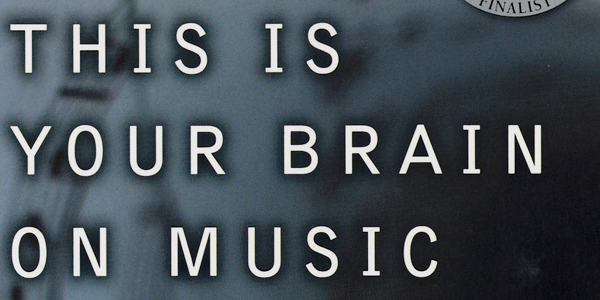Author: Daniel J. Levitin
Publisher: Plume
Publication Date: August 28th 2007
Price: $18.00
Edition: Paperback, 226 Pages
According to the author, This Is Your Brain on Music: The Science of a Human Obsession, is “about the science of music, from the perspective of cognitive neuroscience.” (p. 11) It provides an extensive two chapter introduction to the concepts of music followed by an interesting study on what happens to the brain when we listen to music.
My first impression of this book was quite good. I was expecting something different as far as the tone of the writer and the content of the book, but I was pleasantly surprised. His writing style could at times be a little advanced, but he made a decent effort at providing examples of music that are within reach for most readers. For example, following the introduction, there are two chapters on music theory, and while most musicians could skip them or merely gloss over them, they still may be difficult for non-musicians to really grasp.
The first chapter of the book was captivating, the second was just too long. It really took until about halfway through the book for it to start to get interesting, so for those of you not willing to push through, I might suggest skipping the second and third chapters (particularly if you already have a decent background in music).
There were several interesting points Levitin made in the book that really grabbed my intention. Some of these were:
- “Practice is the cause of a achievement, not merely something correlated with it.” p. 196
- Talent is retrospective, It is a term applied AFTER achievements have been made. You cannot tell whether someone is “talented” or not before those achievements have been made.
- Chapter 7 discusses why some people excel in music while others quit lessons because they didn’t feel music was for them.
- Chapter 5 has a really interesting analysis on how we definite music and categorize genres.
- “In several studies, the very best conservatory students were found to have practiced the most, sometimes twice as much as those who weren’t judged as good.” p. 196
- “We also know that, on average, successful people have more failures than unsuccessful people” p, 207 Successful people learn from their failures and keep going, unsuccessful people are discouraged by failure so they move on to something else.
- “So much of the research on musical expertise has looked for accomplishment in the wrong place, in the facility of the fingers rather than the expressiveness of emotion.” p. 209
The book takes a few chapters to really become interesting (and yes, as many readers have complained, the author does a bit of namedropping), but I think it’s definitely a good read. Recommended.
Get This Is Your Brain on Music: The Science of a Human Obsession on Amazon.
[template id=”182″]

